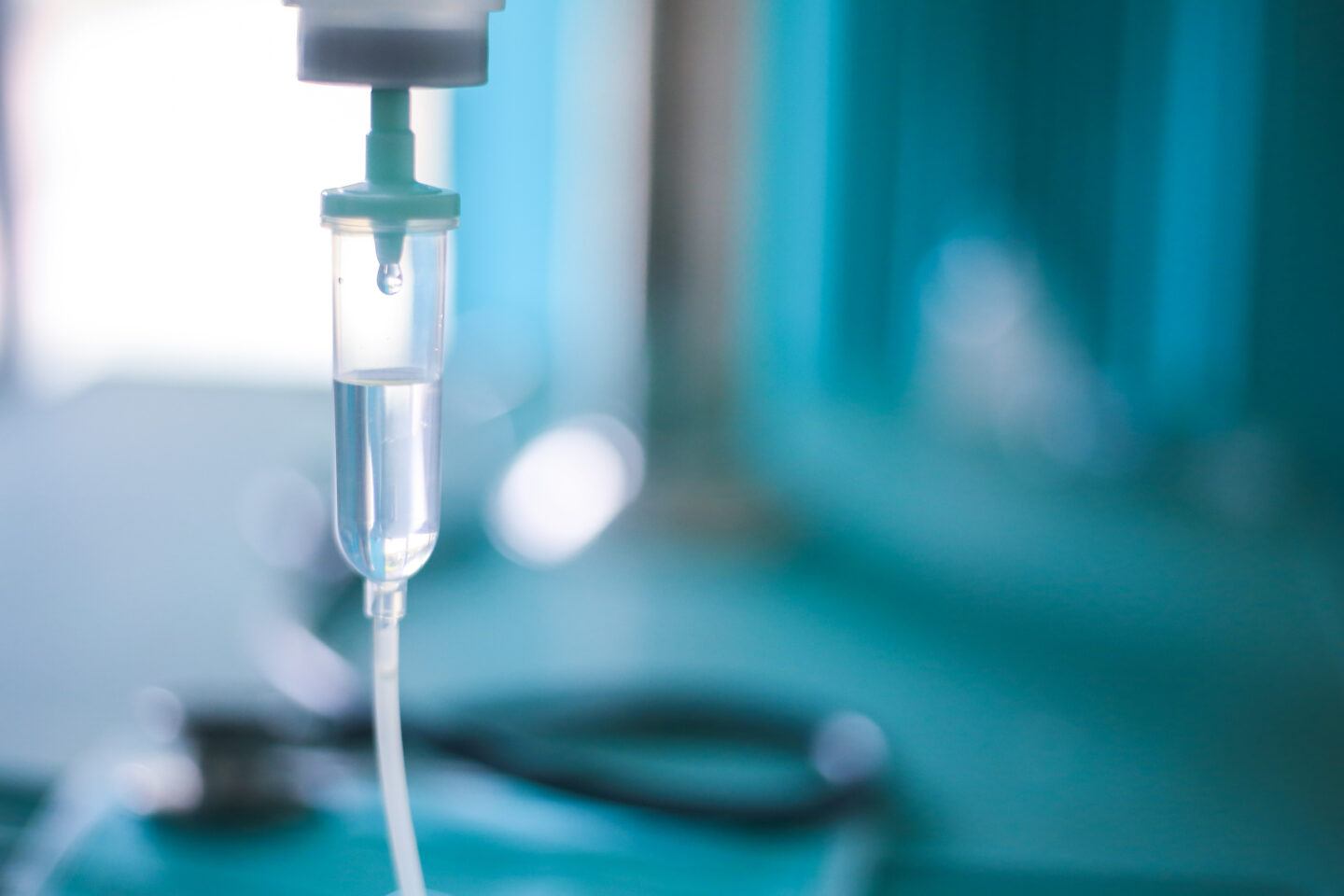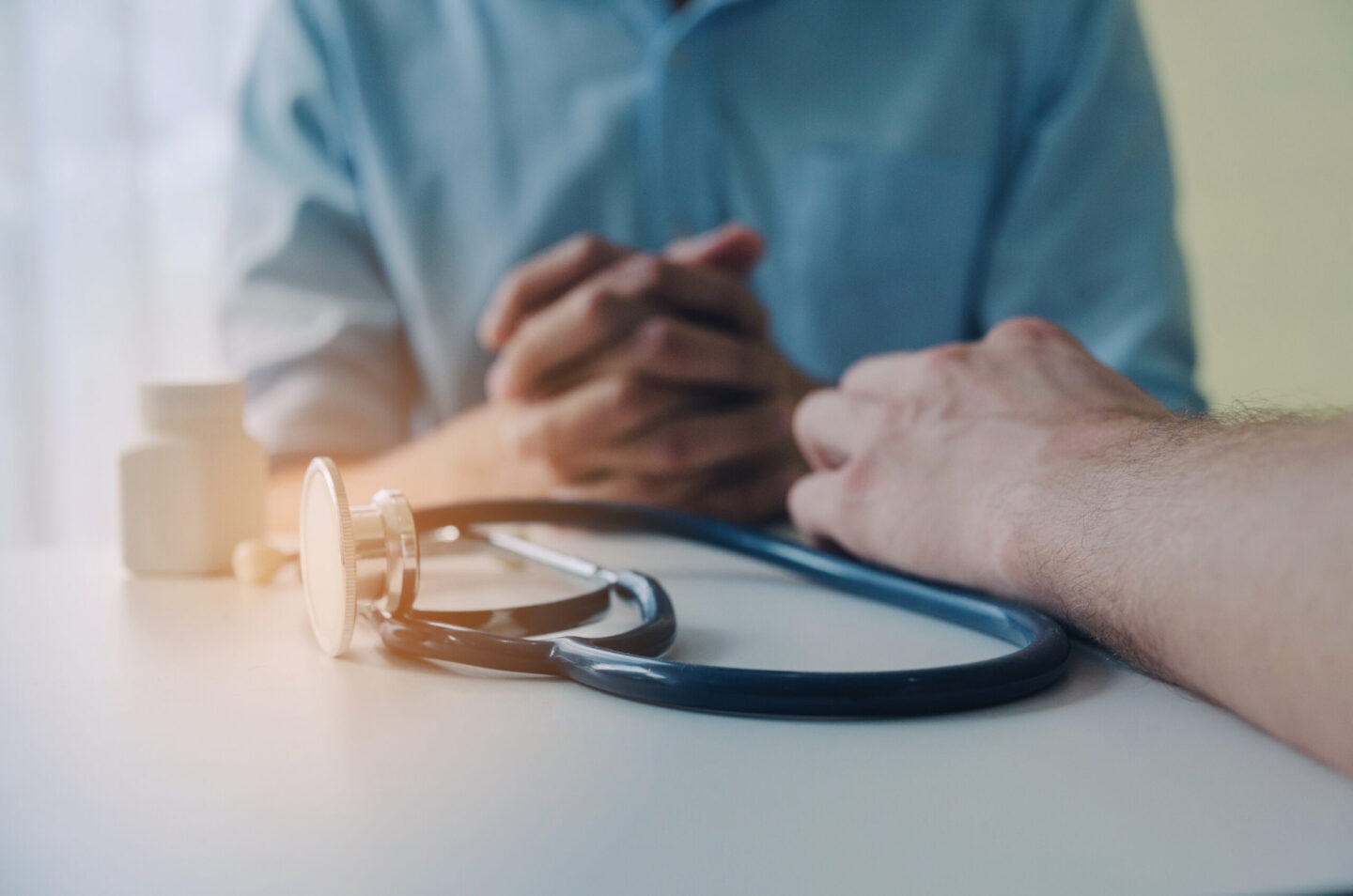Learn about chemotherapy for prostate cancer and whether this treatment may be suitable for your situation.
Chemotherapy is a cancer treatment in which anti-cancer drugs are administered through infusion – a drip into a vein in your arm. The drugs enter your bloodstream and move through your body to attack cancer cells.
Chemotherapy is not a cure for prostate cancer, but it can help to:
There are different chemotherapy drugs for all types of cancers.
There are two types of chemotherapy drugs commonly used for prostate cancer. Both types work by stopping cancer cells from growing and multiplying:
Ask your specialist if you have any questions about which medication you have been prescribed.
Chemotherapy involves a schedule, or cycle, of regular infusions at the hospital, as well as ongoing tests and monitoring. Chemotherapy for prostate cancer is usually given in 3-week cycles, to allow your body time to recover between treatments. Each infusion treatment lasts around one hour.
On average, most people with prostate cancer receive 6 cycles of chemotherapy, but this can vary from person to person. If your prostate cancer was discovered to have spread initially, you will only have 6 cycles. People with advanced prostate cancer may need more cycles.
Your medical team will discuss the cycle length with you before you start chemotherapy.
Chemotherapy is a commonly used treatment for prostate cancer that has spread or is advanced. Not everyone diagnosed with prostate cancer will need to have chemotherapy. Your health care team will advise you if this treatment option is likely to be beneficial for you.
If you are having chemotherapy, your specialist will develop a personalised treatment plan that considers your individual needs and circumstances. Your treatment plan will most likely cover:

Like all prostate cancer treatments, chemotherapy may cause side effects. That’s because chemotherapy can also affect healthy cells in the:
You may experience side effects anywhere from immediately after treatment to months later. These are some of the most common side effects, and when they generally appear:
These side effects affect everyone differently, and you may not get all of them. Most go away after you finish your chemotherapy treatment program. Below are some tips for managing any side effects that do begin.
Before you start treatment, talk to your specialist about the potential side effects. Being aware of what’s to come can help you develop strategies to cope and stay as healthy as possible.
There are many steps you can take to manage the side effects of chemotherapy. Some medications exist to help you manage side effects, including:
Your specialist will give you more information about these medications and whether you may benefit from them.
To manage the side effects and stay as healthy as possible, try to follow these tips:
In the days before each chemotherapy treatment, you will need to have blood tests to check your levels of blood cells. This is to check that you have a safe amount of blood cells to tolerate the treatment, because low levels can increase your risk of infection.
You may also need tests to check your kidney and liver function. Your medical team will tell you which tests you need and when you need to have them done.
Your treatment will take place at the hospital, usually in the outpatient infusion centre.
Between treatments, you can continue to live life as usual. You don’t have to avoid pregnant women or children, but do try to stay away from sick people as you may be at a higher risk of infection. Always tell any other health care professionals (such as dentists) that you are having chemotherapy.
If, at any time, you are concerned about a side effect or symptom, call your medical specialist or emergency contact.
When your chemotherapy treatments have finished, you will see your specialist to determine your next steps. Everyone responds to chemotherapy differently, and the results depend on many factors, such as the grade of your cancer and your overall health and wellbeing.
You may need to see your specialist for ongoing monitoring or further treatment, or your medical team may be satisfied that the treatment has worked as expected. Your specialist will tell you about the next steps after your final chemotherapy cycle.


